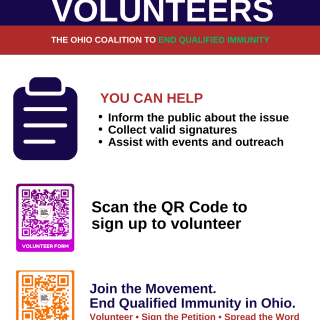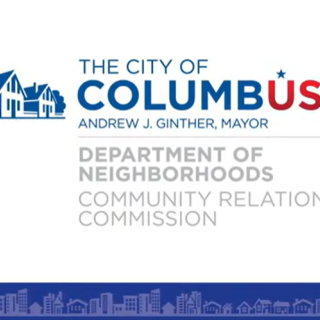Advertisement
On Sullivant Avenue, the block begins at Columbian and pretty much ends at Hague. If you don’t know what the block is, you might be better off. If you do know the block, you likely have an opinion of it. If you’re reading this article (that is to say, someone with regular internet access, time to read an article with some leisure, and sharp enough to follow the Columbus Free Press), and know the block, odds are that your opinion is strong. The block is a tough place. As someone familiar with tough spaces, I don’t know many like this one.
The police will tell you all kinds of things about Sullivant Avenue but a good deal of it is just to boost their funding. It works, too. They got a million dollar boost to sweep the streets of the Hilltop. I have walked the streets, the alleys, and gotten to know a large number of people there in the last few years, I haven’t had much of an issue with anyone but the cops.
Sex workers, in my opinion, are the true power brokers of the block. Despite being targeted by police, psychopaths, assholes in general, and overbearing organizations trying to save their souls, they can decide your fate faster than anyone. The ladies are the eyes and ears. The ladies feel the most pain. The ladies guide the money.
The majority of streets that intersect Sullivant have a place to feed the vices that the Department of Health writes statistics about. Cocaine, fentanyl, ice, pills, whatever you need, it’s all out there for a price. That price varies depending on who you are and who you know.
Many things can kill you out there, but fentanyl is definitely the current leader. Black people, as seems to be the case in so many unjust ways in this city, are taking the hardest hits. You might be surprised to learn, however, that the main people overdosing on fentanyl are not the regular users. They have a tolerance, a shield, in a way.
Fentanyl is killing people without a tolerance much of the time. People whose crack gets contaminated accidentally…people whose anything gets contaminated, for that matter, are quick to fall. Another group of people falling frequently are those forced into treatment by a justice system that has no clue what the fuck it is doing. They don’t want to, aren’t ready to, or are ashamed to admit they can’t stop using. The tolerance is buckled by the time off. They are more prone to using alone. They die.
Getting Narcan into people’s hands is one of the best lines of defense against these relatively easily preventable deaths. The “easily” part is something I know because, if I am to assume even half of the numbers I am told are accurate, the people I know myself have saved hundreds. The “relatively” part is because I have revived 14 people and two dogs myself, and easy is not the word I would use. I haven’t watched any stay dead, thankfully/knock on wood, but I hear about those that do frequently.
The physical act of saving someone from dying of an opioid overdose is not particularly difficult. Nasal spritz, chest compressions, rescue breaths, pulse checking—these are all things I’m pretty good at now. One dose up alternating nostrils every two minutes, forceful pushes to the sternum to the beat of “Stayin’ Alive” by the Bee Gees, and pinching the nose to push in a breath, these are things most of us can do, given the opportunity and tools.
One of the biggest problems is that people who don’t use that drug, but might use others that happen to be sold by the same people, or just get unlucky, think “it could never happen to me.” Shut up and take some anyway. It isn’t for you. It is so you can help someone else.
Fringe Public Health
There is a new place on the block trying to help people and save lives. Fringe Public Health opened in August 2023 at 2016 Sullivant. It is a nondescript storefront with large blinds covering the windows. The clients there appreciate the privacy—not many seek to advertise that they are picking up naloxone and/or condoms. Fringe also provides first aid supplies like band-aids, gauze, TAO, alcohol wipes, and utilitarian seasonal items (handwarmers, winter hats and gloves, and lip balm were recently replaced ponchos and water bottles with flavor packs) for no cost and zero barrier to access.
No identification is needed to get help. Anyone can come as they are and be welcome. They even have a shower and washer/dryer to get yourself looking and feeling better. A sign on the door alerts police that a warrant will be needed for entry. It is a safe space. Many people’s trauma is related to the police out here, and there is no need for their presence. Any person, or combination of people, who make the place unsafe for others has to leave. Verbz, the outreach manager, is firm about that.
“There is a police station 100 yards away. If that is the route that someone thinks they need to go, it isn’t our concern,” Verbz stated simply. “I am not discouraging anyone from following their instincts, but we want to keep each other safe, and learn that there are alternatives that communication, mediation, de-escalation, and compassion open doors to.”
There hasn’t been a need for anything close to that kind of action since Fringe has been open, but the policy is there just in case. Being next door to the precinct is a very noisy reminder of how active the police are in the area. Inside, however, Verbz is quick to tone down any arguments that might escalate there before it comes close.
There is a sign in each room that reads “No Hate, No Beef, No cops.” If people have differences that began outside, that energy must remain outside. Bigotry also gets called out. There is a way, though, to have a discussion about why certain words and ideas cause damage without alienating people who may very well have never known of an alternative. We already went over the cop bit.
Fringe is the only center on the block that has overnight hours. They open between nine and nine-thirty p.m. and close around three or four a.m. Tuesday, Thursday, and Saturday. They are there when no one else is available, with a kind of hospitality that no one offers in quite the same way. While many groups that help have a religious platform, Fringe is totally secular, and is based on the principles of harm reduction, and abolitionist medicine. I don’t want to butcher the concepts due to my own poor explanations so check them out at the links.
Verbz is prone to writing notes to clients/community/anyone walking by and posting them on the large glass windows that surround the lobby that are rooted in these philosophies. Fringe wants to demonstrate that the arguing, posturing, and general attitudes that sometimes arise on the streets are better aimed at an unjust system than those being held down by it. The pantheon of pains that poverty presents prevent us not just from procuring basic needs, but from focusing on problems that would solve bigger issues long term.
Because it is a safe space first, it is vital to make sure that particular behaviors (that make others feel unsafe) just can’t be tolerated. There should also be substantive reasons to turn someone away, or an ability to have mediation on the matter because the person kept outside may be unsafe out there as well. As with all interpersonal relationships, balance and communication are a must.
None of these is decided on a whim. There is always discussion. The few other people on the Fringe team (David, Max, and Tes) all talk about things, and the folks affected directly are also involved. The widely diverse backgrounds of the Fringe staff is the perfect jigsaw of complementary skill sets. They can handle almost anything thrown at them with ease.
Fringe is dedicated to making a change that goes deeper than lower fatal overdose statistics, emergency room visits and increased numbers of people in some form of treatment or safe housing. They want to change how people look at drug use and sex work. They want to fight against stigmatization and false judgements. If you haven’t been out there, you shouldn’t pretend to know.
There is no expectation that the world, or neighborhood, is going to change overnight. What they are hoping is that if there is a safe space, there will be the opportunity to find a few moments of calm to let the barriers down. When people can communicate openly and honestly; when they can get to know each other beyond the social defense mechanisms that keep them safe on the streets, mutual respect grows. As respect grows, solidarity is cultivated, and the goal of mutual progress can come about far more easily.
Fringe is literally saving lives (six I know of for sure through the actions of staff…I can’t guess how many have used the Narcan they provide, or the knowledge of how to use it effectively). They are serving a community who is in extreme need. They need help though. At the moment, they are only able to stay open three nights per week. They need help making sure there are supplies to hand out. They need you to take action. Please check out this gofundme, and fringepublichealth.org.



